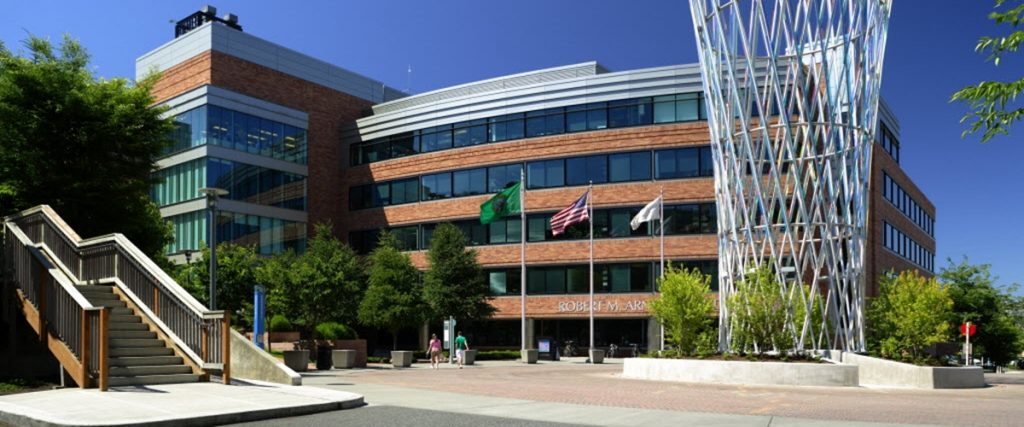
Twelve BC faculty members are now affiliates of the Fred Hutchinson Cancer Research Center, and are pursuing professional development in electron microscopy, scientific imaging, genomics, proteomics and flow cytometry, thanks to a partnership with Bellevue College’s RISE Learning Institute.
The faculty are learning about state-of-the-art research techniques, and exploring ways that they might be able to bring additional research and discovery-based approaches into the classroom. It’s all part of RISE’s goal to get more BC students involved in undergraduate research.
The collaboration, which was launched last spring, works by matching two or three BC faculty with a “research mentor” at the center, known as the Hutch. Each of the five research mentors is a director of a particular set of shared resource facilities at the Hutch. The program is extraordinarily flexible since the precise nature of the professional development is shaped by each faculty member, their research interests, and the expertise of their research mentor.
Beverly Torok-Storb, the founder of the Hutch Training Lab, initially proposed the idea of BC faculty participating in professional development at the Hutch, and the faculty readily agreed.
The collaboration is already paying dividends for BC students. The staff at the Hutch helped analyze samples for a student project in the Undergraduate Research in Chemistry course, and students in an Instrumental Analysis course recently toured the electron microscopy facilities at the Hutch.
Jacqueline Drak, chair of the new baccalaureate degree in molecular biosciences, is planning to bring researchers from the Hutch to talk to BC students as part of her new speaker series, and she is investigating the possibility of BC biosciences students doing their Capstones at the Hutch next year. This would build on the previous research opportunities held by BC students through Hutch ROCCS (Research Opportunities for Community College Students).
The program has started to build a community interested in increasing the number of BC students engaged in research. Biology instructor Cindy Xie said it has “been really useful in forming connections here among faculty at BC. I didn’t know all that many people outside my department, but it’s been great to connect with the other instructors who are involved at the Hutch. I didn’t know there were so many BC faculty interested in bringing research into the classroom.”
While the collaboration is only a year old, faculty are already thinking about how they might use their experience at Fred Hutch to update curriculum, including possibly swapping out classical labs for inquiry-driven experiments and/or authentic research. The success of BC’s ComGen program and numerous national studies have documented the benefit of incorporating research experiences into undergraduate science education, especially for students typically underrepresented in STEM professions.
According to The Pipeline: Benefits of Undergraduate Research (Science, Vol. 316), a survey of 4,500 undergraduate researchers found that research experiences were so powerful because “the inculcation of enthusiasm is the key element — and the sooner the better.
– by Michael Reese & Nicole Beattie
Related Information
Last Updated June 2, 2017
